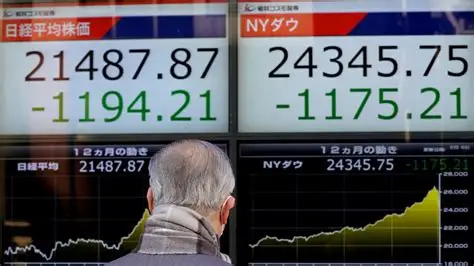Japan’s economic outlook is facing new headwinds as political uncertainty in Europe begins to ripple through global markets. Investors are increasingly worried that instability in key European economies will disrupt trade flows, weaken demand for Japanese exports, and fuel volatility in foreign exchange markets. With growth already slowing in parts of Asia, analysts are warning that prolonged turbulence in Europe could intensify the challenges for Tokyo’s policymakers. As a result, Japan now finds itself navigating both regional and global pressures at the same time.
Recent elections in several European nations have delivered inconclusive results, creating fragile coalition governments and frequent policy deadlocks. These political divisions are delaying economic reforms, stalling trade agreements, and slowing the implementation of fiscal stability measures. Consequently, Japanese exporters are growing concerned about reduced demand from Europe. Since the European Union remains one of Japan’s largest trading partners, even modest disruptions in European consumption could hit Japanese manufacturing, automotive, and technology sectors especially hard. The uncertainty in Europe is already prompting some Japanese companies to review their export strategies and prepare for possible downturns in orders.
Tokyo’s stock market is showing clear signs of caution, with shares of export-driven companies coming under pressure as the yen fluctuates against the euro. The Bank of Japan is actively monitoring these developments, working to balance its domestic inflation-control measures with the need to preserve overall economic stability. Moreover, several financial institutions have already revised their growth forecasts for Japan in 2025, citing weaker global demand and heightened geopolitical uncertainty. These downward revisions reflect growing recognition that external shocks from Europe could derail Japan’s fragile recovery.
Prime Minister Fumio Kishida’s administration is working to shield Japan’s economy from external shocks while still maintaining fiscal discipline. Officials are considering accelerating trade diversification plans, forging stronger ties with Southeast Asian markets and the United States to counter any slowdown in European trade. In addition, policymakers are weighing the possibility of introducing targeted domestic stimulus measures if economic conditions worsen in the months ahead. By acting quickly, the government aims to cushion industries from export declines and protect jobs in vulnerable sectors.
Japan’s position as the world’s third-largest economy means any significant slowdown will have far-reaching consequences. A weaker Japanese economy could disrupt global supply chains, reduce cross-border investment flows, and dampen market sentiment worldwide. Furthermore, when combined with Europe’s ongoing instability, such a slowdown could trigger a ripple effect through global trade networks. Analysts stress that keeping Japan’s economy stable is critical not only for Asia but also for maintaining the overall health of the global economy. Stability in Tokyo’s markets, they argue, is a safeguard against wider financial turbulence.



